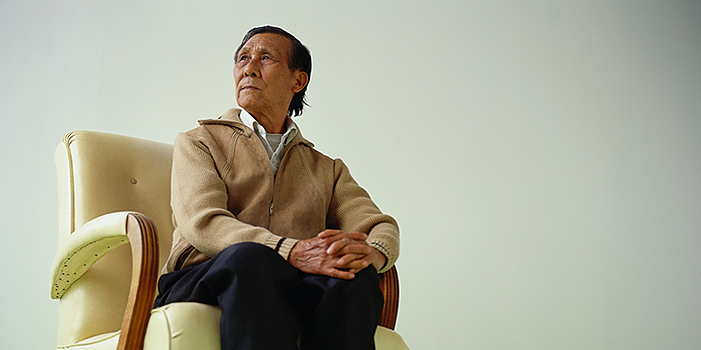Older Adults and Depression: Signs and Treatment
Do you feel very tired, helpless, and hopeless? Have you lost interest in many of the activities and interests you previously enjoyed? Are you having trouble working, sleeping, eating, and functioning? Have you felt this way day after day?
If you answered yes, you may be experiencing depression.
As you get older, you may go through a lot of changes—death of loved ones, retirement, stressful life events, or medical problems. It’s normal to feel uneasy, stressed, or sad about these changes. But after adjusting, many older adults feel well again.
Depression is different. It is a medical condition that interferes with daily life and normal functioning. It is not a normal part of aging, a sign of weakness, or a character flaw. Many older adults with depression need treatment to feel better.
Types of Depression
There are several types of depression. The most common include:
- Major Depression—severe symptoms that interfere with your ability to work, sleep, concentrate, eat, and enjoy life. Some people may experience only a single episode within their lifetime, but more often, a person may experience multiple episodes.
- Persistent Depressive Disorder (Dysthymia)—depression symptoms that are less severe than those of major depression, but last a long time (at least two years).
- Minor Depression—depression symptoms that are less severe than those of major depression and dysthymia, and symptoms do not last long.
Do you know the signs?
Depression may sometimes be undiagnosed or misdiagnosed in some older adults because sadness is not their main symptom. They may have other, less obvious symptoms of depression or they may not be willing to talk about their feelings. It is important to know the signs and seek help if you are concerned.
Depression has many symptoms, including physical ones. If you have been experiencing several of the following symptoms for at least two weeks, you may be suffering from depression:
- Persistent sad, anxious, or “empty” mood
- Loss of interest or pleasure in hobbies and activities
- Feelings of hopelessness, pessimism
- Feelings of guilt, worthlessness, helplessness
- Decreased energy, fatigue, being “slowed down”
- Difficulty concentrating, remembering, making decisions
- Difficulty sleeping, early-morning awakening, or oversleeping
- Appetite and/or unintended weight changes
- Thoughts of death or suicide, suicide attempts
- Restlessness, irritability
- Aches or pains, headaches, cramps, or digestive problems without a clear physical cause and/or that do not ease even with treatment
Is it Grief or Depression?
Grief after loss of a loved one is a normal reaction to loss and generally does not require mental health treatment. However, grief that lasts a very long time or is unusually severe following a loss may require treatment.
Risk Factors
Although most cases of depression are diagnosed in young adults, depression can occur at any age. Certain people are at a higher risk for developing depression. If you are an older adult, you may be at a higher risk if you:
- are female
- have a chronic medical illness, such as cancer, diabetes or heart disease
- have a disability
- sleep poorly
- are lonely or socially isolated
You may also be at a higher risk if you:
- have a personal or family history of depression
- use certain medications
- suffer from a brain disease
- misuse alcohol or drugs
- have experienced stressful life events such as loss of a spouse, divorce, or taking care of someone with a chronic illness
How do I get help?
If you think that you or a loved one may have depression, it is important to seek treatment. A person with depression cannot simply “snap out of it”—it is a medical condition that affects your quality of life. Depression can also lead to suicide, particularly if left untreated, and you are more likely to develop a physical illness if you have depression.
The good news is that, in most cases, depression is treatable in older adults.The right treatment may help improve your overall health and quality of life. With the right treatment, you may begin to see improvements as early as two weeks from the start of your therapy. Some symptoms may start to improve within a week or two, but it may be several weeks before you feel the full effect.
Learn More
For more information about mood and related issues, the following resources may be helpful.
- Mood Disorders Society of Canada. https://mdsc.ca/about-us/
- Anxiety Disorders Association of America. www.adaa.org
- The Canadian Network for Mood and Anxiety. www.canmat.org
- Obsessive Compulsive Association. www.ocfoundation.org
- The Anxiety Network. www.anxietynetwork.com
Source: National Institute of Mental health, with permission. Please note that any information regarding medications is provided for educational purposes only and may be outdated.













